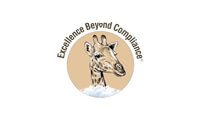Leadership Insights
Living in Times of Uncertainty: A Leader’s Calling
By Don Janssen, DVM
Where there is no uncertainty, there is no longer the need for leadership. The greater the uncertainty, the greater the need for leadership.
—Andy Stanley
Leaders are called to look to the future and show us a better way. But during times of great uncertainty, even the most forward-thinking leaders can be shaken by the unknown. Maybe uncertainty has always been part of life. Still, some claim we are entering a new era where pandemics, wars, severe weather, civil unrest, and financial collapse are evidence that we live in times of unprecedented uncertainty.
I admit that all this uncertainty has caused me moments of fear, anxiety, and indecision. And I'm probably not alone. Most likely, you, too, have seen the familiar systems and sense of order you trusted and relied upon fail you or no longer apply. None of us has been through a time like this.
Our physiologic processes that maintain homeostasis have trouble handling this much uncertainty. When forced to cope with repeated and intense uncertainty, our bodies respond as if to a threat, affecting our well-being and ability to function at a high level.
The people you work with are going through the same challenges and are desperate to make sense of it all. Your team will look to you for answers if you are in a leadership position. How do you respond?
To answer this question and better understand the topic, I consulted several zoo and aquarium leaders who led teams through the COVID-19 pandemic. I quote their comments at the relevant places.
Clarity—the Next Best Thing
People crave certainty. They want to know, and they want answers. But lacking certainty, clarity is the best alternative. One veterinary leader said, "With the uncertainty and chaos, folks wanted to be led. Clarity—on what to do and how to do it—was important to them." When our leaders communicate with clarity, it builds confidence and trust. You don't have to be 100 percent certain to be 100 percent clear. Bringing clarity to the situation is a crucial leadership skill. Clarity is enough, and it is leadership. Indeed, without clarity, no one can follow you, even if they'd like to. So, how do we get clarity when so much to is uncertain?
Using Clarity to Overcome Uncertainty: Tips for Leaders
- Speak with confidence and humility. We often equate humility with a lack of confidence. On the contrary, a humble person has an accurate assessment of what they know and what they don't know. With a humble approach, you don't pretend to know everything, but you can speak confidently about what you do know. People can then take what you say at face value, confident you don't have a hidden agenda.
- Use your purpose, vision, and values as stabilizing forces. The clarity brought by remembering what’s most important can bring unity, and overcome uncertainty and ambiguity. Our purpose and values are relatively unchanging, providing a familiar foundation when everything else is in flux. A clear, overarching vision is necessary to stay on track. Share the vision regularly and make it relevant to the daily work. Nothing says clarity better than a leader committed to a vision and determined to share it. A good vision embedded in the organization is indispensable for overcoming tough times. As one veterinary leader stated, "When everything was falling apart, we could focus on our vision and purpose to keep us going."
- Provide clear expectations. Identify the critical projects and tasks, what you expect, and communicate why. In the words of one veterinary leader I interviewed, "With all the uncertainty and constantly changing situations, it was important to lead." Another put it this way: "Clarity on what to do and how to do it was important to them." Give them something to do. The people want to see you and hear your voice, not just read an email. So, be physically present whenever possible. When you provide knowledge and clarity, you won't reduce uncertainty. But you will reduce the anxiety and isolation people feel. And doing so will show that you care.
- Clarify that people and relationships are more important than circumstances. When uncertainty mounts, we often put our most significant effort into returning systems to normal. But, especially in a crisis, the best results will come from paying attention to people. Learn to use empathy, which is being sensitive to the needs of others. It requires listening. "Empathy and genuine care for the team has carried our group through this pandemic." Those words from a senior zoo leader speak to the centrality of empathy during times of uncertainty. Circumstances do not distract the best leaders. Those leaders focus on people and building trusting relationships. With that focus on people instead of circumstances, they bring hope and courage to their teams. The best results will undoubtedly follow.
One of the pandemic-tested leaders said "A crisis is a showcase for the value of leadership." Uncertainty is not the enemy. It is an opportunity to lead. Uncertainty is a leader's field of operation. That is where leaders are needed. That is where they are tested. If it's true that we have entered an era of unprecedented uncertainty, there will also be an unparalleled need for selfless leaders who are called to serve the needs of others.
Please send comments or questions to don.janssen@gmail.com.
Don Janssen, DVM, is a veterinarian and retired corporate director of animal health for San Diego Zoo Wildlife Alliance. He is the author of Upside-Down Leadership: A Zoo Veterinarian's Journey to Becoming a Servant Leader. Find more information about the book and other articles by Don Janssen here.






















